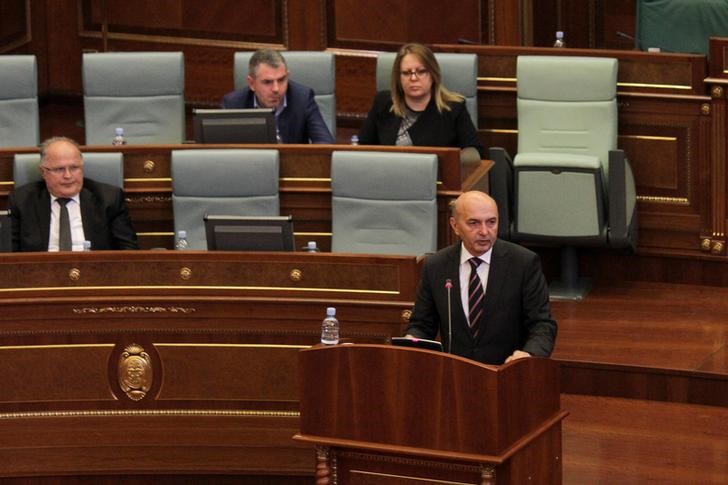By Fatos Bytyci
PRISTINA (Reuters) - Kosovo could be heading towards lengthy talks on forming a coalition government, delaying economic reforms, official preliminary results showed on Monday.
Early elections were held on Sunday after the PDK-led government of Prime Minister Isa Mustafa, accused by the opposition of failing to meet pledges to improve the lives of young people, lost a no-confidence vote,
"The outcome is definitely one which is not creating immediately a clear majority for a government and I hope that it does not take again up to nine months as it was the case last time (2014)," said Johannes Hahn, the European Union's chief in charge of enlargement.
Both the Democratic Party of Kosovo (PDK) and the Democratic League of Kosovo (LDK), who had been together in the coalition government until last month, excluded the possibility of renewing the partnership.
With 99 percent of the votes cast on Sunday counted, the PDK-led coalition had 34 percent of votes, the opposition Vetevendosje (VV) party 27 percent, and a coalition led by the LDK nearly 26 percent, the Election Commission website showed.
The result would give the PDK-lead coalition 39 seats in the 120-seat parliament while VV would get 31 and LDK 30, Pristina media reported. The remaining 20 seats would go to minorities -- 10 to Serbs and 10 to other ethnic groups.
The state election commission put the turnout at 41.5 percent, the lowest since 2008, with many Kosovars frustrated over the lack of economic progress and a deep level of corruption.
VV, which nearly doubled number of seats compared to the 2014 elections when it won 16 seats, blames both the PDK and LDK for a deep level of corruption and poor living standard. It refuses to enter a coalition with the PDK and has conditions for the LDK.
"We can not exclude another snap election," said political analyst Imer Mushkolaj.
The new government will have to tackle unemployment running at 30 percent and improve relations with Kosovo's neighbours, especially Serbia, a precondition for both countries to move forward in the European Union accession process.
It must also reform health and education, and the tax administration system.
Any government will have to include representatives of some 120,000 Kosovo Serbs who do not recognise independence.

Kosovo declared independence in 2008, nine years after NATO bombing drove out Serbian forces accused of killing and expelling Kosovo Albanian civilians as Serbia tried to put down an ethnic Albanian insurgency. Serbia still refuses to recognise Kosovo's independence.